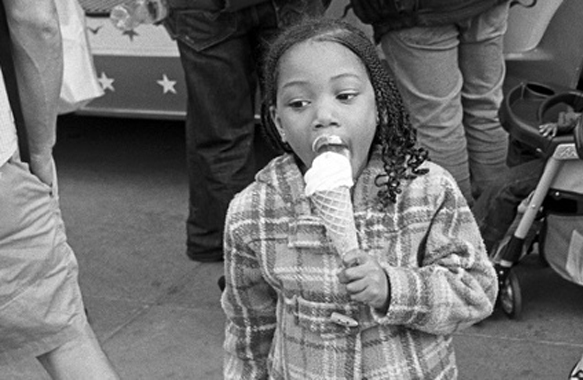The Education Paradigm – Raising Children to Return to Our Basements
Illustration; Shutterstock By Yong Zhao | Originally Published at Zhao Learning.. July 2, 2014 Last year when my son graduated from college, I asked the question “can you stay out of my basement?” as I believe an important outcome of education is the ability to live out […]
Black People Were Denied Vanilla Ice Cream in the Jim Crow South – Except on Independence Day
It was only 60 years ago that this would have been an unheard of sight in the south. Photograph: My Mundane Life/ Flickr
Over the last many decades, we have removed History from the curriculum. But fortunately, we did not forget it. The past cannot be erased from our lives. Memories are our teachers; lessons are inspirational masters.
By Michael W Twitty | Originally Published at The Guardian. July 4, 2014 06.45 EDT
By custom rather than by law, black folks were best off if they weren’t caught eating vanilla ice cream in public in the Jim Crow South, except – the narrative always stipulates – on the Fourth of July. I heard it from my father growing up myself, and the memory of that all-but-unspoken rule seems to be unique to the generation born between World War I and World War II.
But if Maya Angelou hadn’t said it in her classic autobiography I Know Why the Caged Bird Sings, I doubt anybody would believe it today.
People in Stamps used to say that the whites in our town were so prejudiced that a Negro couldn’t buy vanilla ice cream. Except on July Fourth. Other days he had to be satisfied with chocolate.
Vanilla ice cream – flavored with a Nahuatl spice indigenous to Mexico, the cultivation of which was improved by an enslaved black man named Edmund Albius on the colonized Réunion island in the Indian Ocean, now predominately grown on the largest island of the African continent, Madagascar, and served wrapped in the conical invention of a Middle Eastern immigrant – was the symbol of the American dream. That its pure, white sweetness was then routinely denied to the grandchildren of the enslaved was a dream deferred indeed.
What makes the vanilla ice cream story less folk memory and more truth is that the terror and shame of living in the purgatory between the Civil War and civil rights movement was often communicated in ways that reinforced to children what the rules of that life were, and what was in store for them if they broke them.
My father, for instance, first learned the rules when he first visited South Carolina with my grandfather in the 1940s. In our family’s home county of Lancaster, Daddy asked the general store owner if he could buy empathyeducates – Black People Were Denied Vanilla Ice Cream in the Jim Crow South – Except on Independence Day:

